Physiotherapy in Redcliffe for Snowboarding
Welcome to My Health Team's Stretching Guide for Snowboarding resource.
Stretching is an essential part of successful snowboarding. A good stretching routine can help to minimize muscle imbalances, prevent injury, improve your exercise tolerance and your boarding performance. The following stretching program is designed for snowboarders who do not have any current injuries or individual stretching needs. If you have an injury, or a specific mechanical imbalance that may be holding back your snowboarding performance, your My Health Team physiotherapist can design a stretching program just for you.
When is the Best Time to Stretch?
When your muscles are warm and relaxed! Snowboarding is a dynamic sport so you'll need both dynamic and static stretching. Dynamic stretches form part of your pre-boarding warm-up. Static stretches can be included at the end of your cool down or at other times to improve your overall fitness.
Pre-boarding:
General warm up (5-10 minutes). The aim of a general warm-up is to get the blood flowing to all parts of the body to be used during snowboarding, including the cardiovascular system. Beginners can warm up by walking or jogging, for example walking to your first boarding lesson or the top of the beginners slope. Snowboarders with experience may choose a long, easy run to warm up on the snow. You may need to warm-up after you get to the top of your first runs. If your first ride to the top of the mountain takes 5 minutes or more, then any warm-up prior to then will be wasted.
Dynamic stretching - completed off the board. Gradually the speed and intensity of your movement is increased. See below for stretches.
Technical and speed warm up - completed on the board. For experienced boarders, this includes high intensity, snowboard specific skills. Drills for speed and agility should be kept short with recovery time between drills to ensure you are not fatigued early in the day. For beginners, this includes practicing basic boarding skills, such as stopping and turning on an easy slope.
The pre-boarding regime, including the dynamic stretching program below, will take at least 15 minutes to complete.
Post-boarding:
Cool down. A cool down allows the body, in particular the cardiovascular system, to gradually return to its resting state. A cool-down reduces your chances of becoming dizzy or faint after exercise, allows any waste such as lactic acid that has built up during exercise to dissipate and may reduce your chance of having Delayed Onset Muscle Soreness (DOMS). Cool down by gradually reducing the intensity of your snowboarding, taking a long, easy slope for your last run, or walking for about 5-10 minutes.
Static stretches. Commence your stretching regime directly after a short cool-down, before the muscles have cooled completely.
Rules for Dynamic Stretching:
Warm up your muscles first, then stretch while your muscles are still warm.
Move through your range of movement, keeping control of the movement with your muscles. Do not allow momentum to control the movement by "flinging" or "throwing" your body parts around.
You may feel light resistance in your muscles, but you should never feel pain during a stretch.
Start with slow, low intensity movements, and gradually progress to full-speed, snowboarding-like movements.
Dynamic Stretches - snowboard off:
Examples:
Lunges
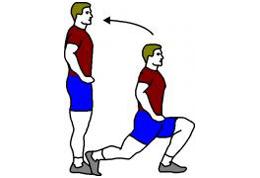
Trunk rotation
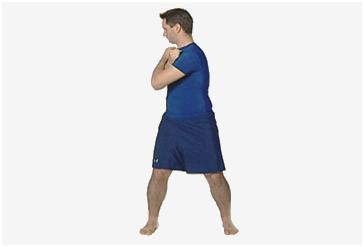
Arm circles
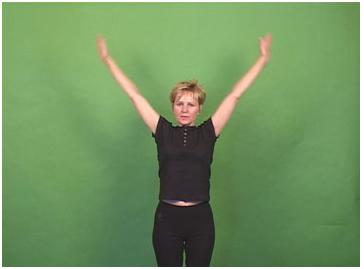
Jumps
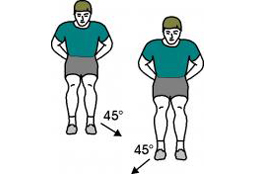
Beginners can eliminate the last two dynamic stretches - they will tire you out.
Hops
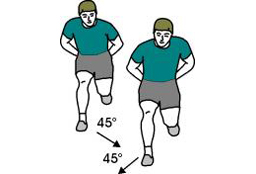
Rules for Static Stretching:
Warm up your muscles first, then stretch while your muscles are still warm.
Slowly take your muscles to the end of their range. You will feel light resistance in the muscle, but you should never feel pain during a stretch.
Hold the stretch in a static position. Do not bounce. This will help slow down the nerve impulses and return your muscles to a resting state.
Hold each stretch for 20-30 seconds. Repeat each stretch 3-4 times.
Static Stretches for Snowboarding:
These muscles are your prime movers for snowboarding. You'll need to stretch these muscles after you snowboard. Don't forget to stretch both sides.
Calf (gastrocnemeus) stretch
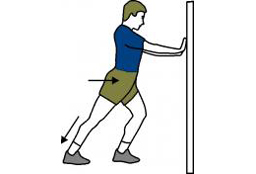
Calf (soleus) stretch
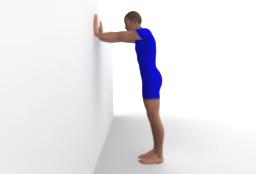
Quadriceps
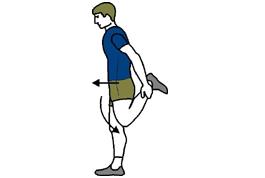
Hamstrings
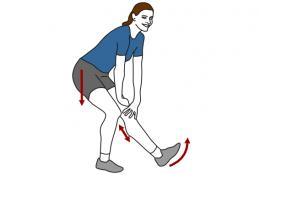
Groin
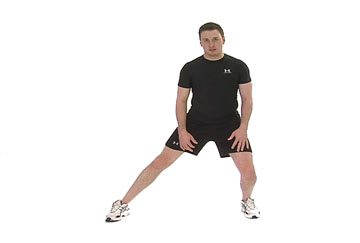
Hip External Rotators/ Gluteals
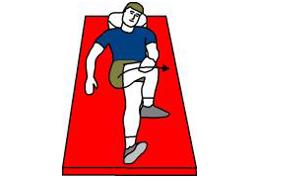
Hip Internal Rotators/Gluteals
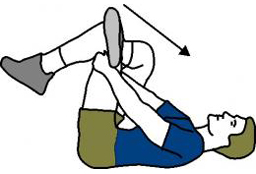
Back and Abdominals
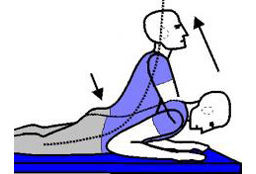
Trunk rotation

Anterior Shoulder
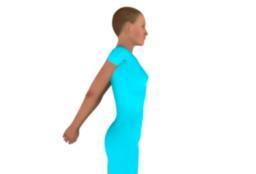
 Get Immediate Access To Your Special Report And Top Tips From Our PTs!
Get Immediate Access To Your Special Report And Top Tips From Our PTs!


